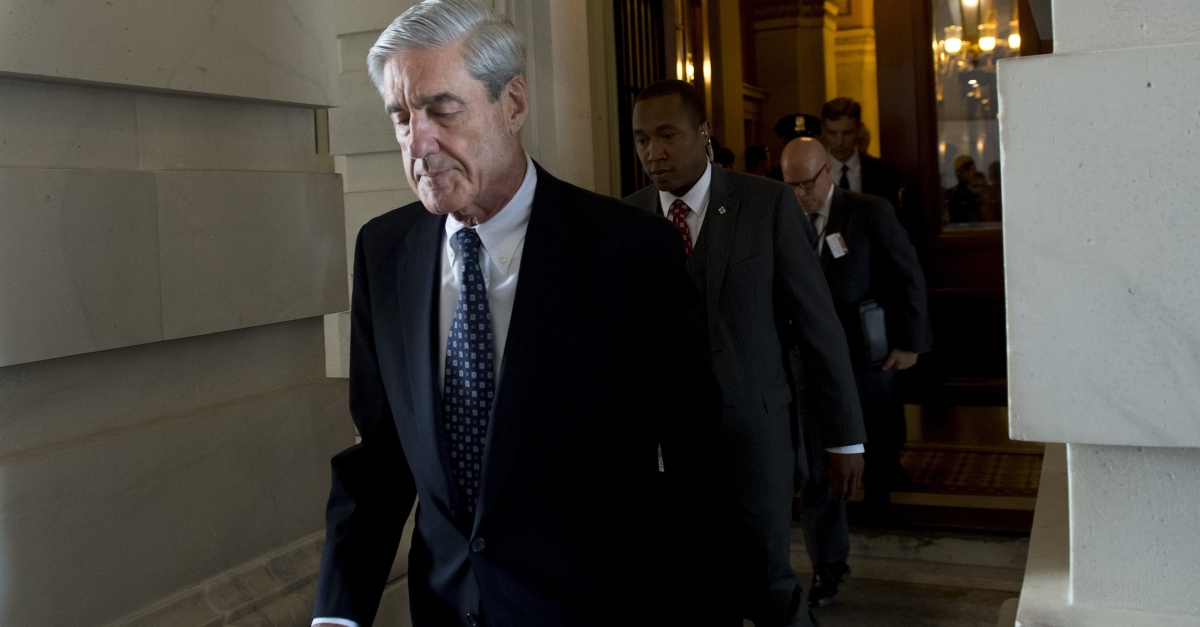
Some time on Thursday, Congress and the public will finally see Special Counsel Robert Mueller‘s report containing his findings from the investigation of Russian interference with the 2016 election. House Democrats have been lamenting that Attorney General William Barr is blacking out sensitive material. Now that it’s been reported that redactions will not be extensive, however, one legal expert is anticipating what Democrats will call for next.
“If Mueller Report has minimal redactions expect focus to shift to demands that Barr release underlying documents and interview reports,” CNN legal analyst Ross Garber tweeted Wednesday night.
If Mueller Report has minimal redactions expect focus to shift to demands that Barr release underlying documents and interview reports.
— Ross Garber (@rossgarber) April 18, 2019
The key focus that Democrats in the House of Representatives will have when it comes to Mueller’s report is the section that discusses obstruction of justice. Barr said in his letter summarizing Mueller’s findings that the investigation found no collusion or cooperation between the Trump campaign and Russia, but was more ambiguous when it came to the obstruction issue.
Barr’s letter quoted Mueller’s report as saying that “while this report does not conclude that the President committed a crime, it also does not exonerate him.” It also said that when it came to obstruction, Mueller presented “evidence on both sides of the question.” That means that there was some evidence supporting an obstruction case, even if Barr and Deputy Attorney General Rod Rosenstein didn’t think it was enough to support a case against President Donald Trump.
That evidence would be the “underlying documents and interview reports” that Garber mentioned. Depending on the nature of these records, such a demand could spark a heated court battle. Any evidence that contains grand jury information would have to be kept secret, unless a court orders it to be disclosed.
The problem with that, as Barr pointed out during a recent congressional hearing, is that the D.C. Circuit Court recently ruled that courts cannot order the disclosure of grand jury information except for in specific circumstances outlined by the Federal Rules of Criminal Procedure. The most closely related exception would be the one for “judicial proceedings,” but it would be up to a court to determine if a House inquiry fits the bill.
[Image via SAUL LOEB/AFP/Getty Images]